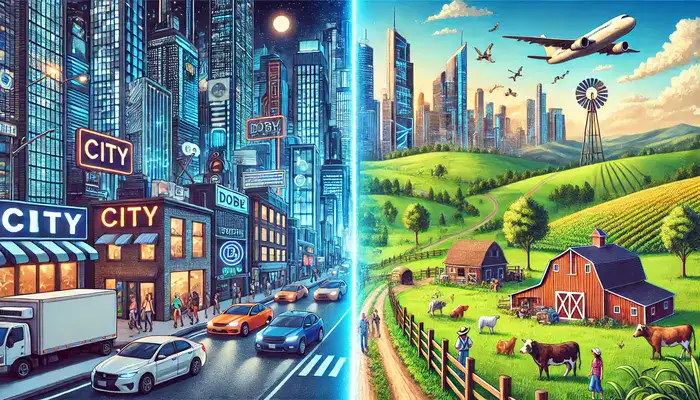Table of Contents
English presentation on the advantages and disadvantages of living in big cities given by LELB Society’s students to practice speaking and receive detailed feedback. Join our members to give presentations and practice speaking.
Video of English Presentation on Living in Big Cities
Reading Practice on Living in Big Cities
The Advantages of Living in Big Cities
Living in big cities comes with both advantages and disadvantages, affecting various aspects of life. One of the main benefits of urban living is access to numerous opportunities, including better job prospects, higher salaries, and a diverse range of career options. Cities often have a concentration of industries, businesses, and multinational companies, making them ideal for professional growth. In addition, big cities provide high-quality education with prestigious universities, specialized training centers, and well-equipped schools, ensuring better academic and professional development.

Another significant advantage of living in big cities is the availability of modern amenities and entertainment. Cities offer a variety of cultural experiences, such as museums, theaters, concerts, and international restaurants, allowing residents to enjoy a vibrant social life. Public transportation systems, including subways, buses, and ride-sharing services, make commuting convenient and reduce dependency on personal vehicles. Moreover, big cities have advanced healthcare facilities with top-tier hospitals and specialized doctors, ensuring quick and efficient medical services.

The Disadvantages of Living in Big Cities
However, despite these benefits, urban living comes with several challenges. One major disadvantage is the high cost of living, as housing, transportation, and daily expenses tend to be significantly more expensive than in rural areas. Overcrowding and housing shortages lead to inflated rent and property prices, making it difficult for many people to afford comfortable living conditions. Additionally, the fast-paced lifestyle in cities can lead to stress and anxiety, as people often struggle to balance work and personal life while dealing with competitive environments.

Another drawback of living in big cities is pollution and environmental issues. Air pollution from traffic congestion and industrial activities negatively impacts residents’ health, contributing to respiratory diseases and other health problems. Noise pollution is also a concern, as constant traffic, construction, and crowded spaces can be overwhelming. Furthermore, safety and crime rates tend to be higher in urban areas, requiring residents to be more cautious about their surroundings. Despite these disadvantages, many people continue to choose city life due to the vast opportunities and conveniences it offers.



